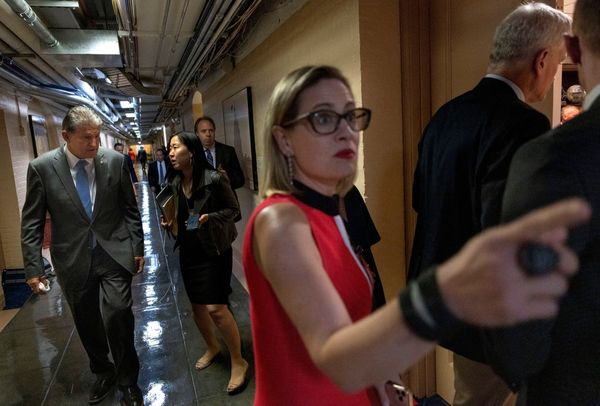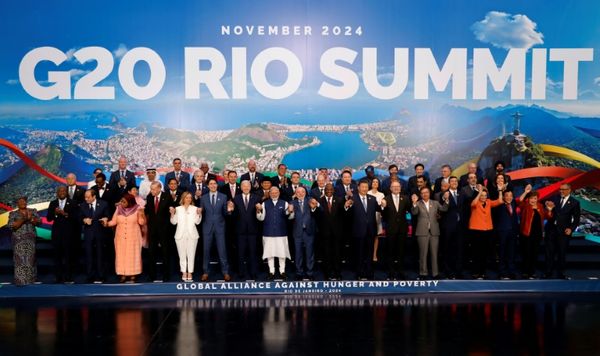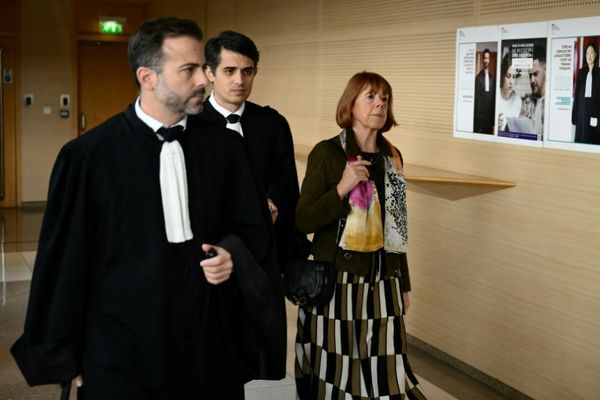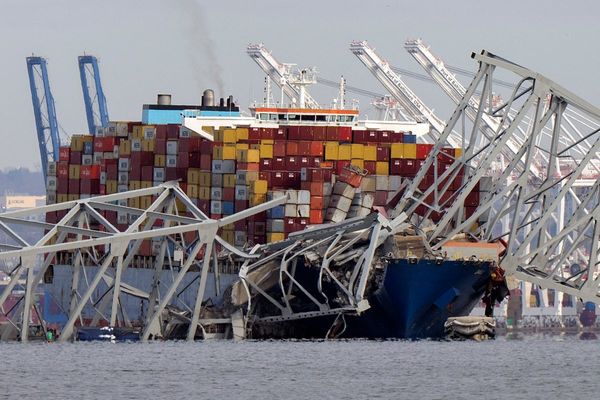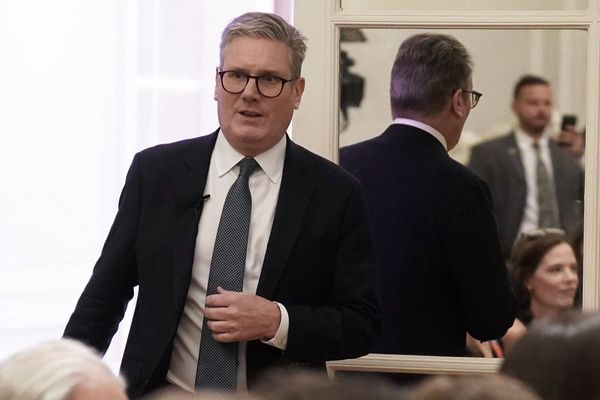
Where do you call home? I’ve travelled and lived in so many places that the question sometimes confused me. Being eastern Ukrainian doesn’t make it easy to look for your roots, either.
Two world wars, the Holodomor, Stalin’s red terror, the collapse of the USSR, decades of isolation from the outside world. But I know from tracing my family tree – as best I could – back to the 18th century that the place I was born into is my ancestral home. A small town called Dvorichna and the villages around it in Kharkiv Oblast, only 19 miles from the Russian border. Since the war, that home has become a frontline, my parents’ house has become a lair for the occupiers, my school has become a shooting range and my entire village has become a battlefield.
Living on the border, the two identities often mixed, on both sides, without much notice – although that has all changed now. Dvorichna was at the border with the Russian Soviet Federative Socialist Republic since its foundation in 1918. But that border was nothing more than a line on a map. There was no physical border with neighbouring Russian villages and towns, and neither was there a linguistic or cultural one.
My father spent half of his childhood in the 1970s with his great-aunt in Urazovo and Logachevka, on the Russian side of the border, where people spoke the same dialect of Ukrainian, with its many Russian loan-words, as they did on the Ukrainian side. But back then, everyone was a Soviet citizen, or “Sovietskie liudi” (Soviet people), a new “nation” under the Russian communist regime, an attempt to unify culturally and linguistically diverse minorities of the USSR.
After Ukraine proclaimed its independence in 1991, a real border went up and people found themselves in two different states. Except they still weren’t that different. We still watched the same films, same TV channels, we had the same celebrities, listened to the same music. I remember how as a child I asked my dad to turn the antenna towards Russia on Sundays in the mid-1990s to watch morning Disney cartoons in Russian.
As the years passed, the border became more tangible. Suddenly, they would check your bags and passport, and you couldn’t bring freshly a slaughtered pig to a market in Urazovo, or your late grandma’s icon back to Dvorichna, because there was an obstacle now, called customs. Local people naturally started to face an identity problem. So am I Russian, or am I Ukrainian? Back then, we were like that antenna: in Ukraine, but sometimes turning toward Russia. We didn’t see what was wrong with it.
But over the years, our true history, without Soviet censorship, opened up for us. Before school, I knew nothing about the Holodomor, I knew nothing about the crimes and repressions of Stalin’s regime, about the abolition of the Ukrainian language by the tsarist regime. My parents never told me because they didn’t know, my grandparents, born in the late 1940s, were taught a refined Soviet history and my great-grandparents were too scared to talk about those times. Learning that history led me and many others to realise our identity. I understood that I am Ukrainian, a culture distinct from that of the USSR or Russia. I almost let Russia erase memory and my true self.

Some people came to this realisation in school, some were affected by the orange revolution of 2004-5, some by the revolution of dignity in 2014, but the majority still remained uncertain. Revolutions were in Kyiv, far away and somewhat obscure, and Russia was here, close and clear.
The final test of identity for those of us living on the Ukrainian side of the border, was when the convoys of Russian tanks and armoured personnel carriers crossed the 1991 border. For us it was an actual state border, no different from the one with Poland on the other side of the country. For the Russians it was that line on a map drawn by Lenin. It meant nothing to them, it was an error, just like Ukraine’s independence. That’s probably why it was so hard for them to understand why we aren’t happy about our “liberation” by Vladimir Putin.
The invasion has since shown us many instances of confused identities. I still ask myself why there were so many collaborators. My Ukrainian language teacher supported the orange revolution, and publicly shamed those who would switch to Russian when we visited Kharkiv. I was shocked when I later saw a YouTube video showing her at a meeting with the representatives of the occupying administration about beginning the school year under Russian curriculum. There was a smug look on her face, and she was taking gifts from them.
Another man who was the father of one of my teachers was pro-Russian, as some older people are, and he greeted their troops with flowers. But then Russian soldiers came to raid his house and he allegedly shot one of them, protecting his property. He was arrested, killed and buried, according to witnesses. I wonder what his thoughts were, when his liberators were trying to steal his carburettor, and what his thoughts were when they came to seize him, probably: “If only Putin knew what they were doing, he would have punished them”. As an old Russian saying goes: “The tsar is good, the courtiers are bad.”
What made these people collaborate? I think some of them knew what they were doing. These people have chosen their identity – Russian. Many more didn’t collaborate in any way, and have either left or engaged in partisan resistance. They have also chosen their identity – Ukrainian.
Then there are the majority who simply tried to get by, signing new employment contracts and reregistering their businesses under the new Russian administration, staying away from “politics”. They were simply trying to keep on living, like children who cover their eyes with their hands and think they are safe.
But the war has inevitably come to their doorstep. The middle school, where my dad used to work, is now a shooting range and a torture facility. They shoot people in our gymnasiums and torture them in our classrooms, they live in our homes and eat food from our cellars, they sleep in our beds and loot our properties. Why? Because Ukrainians dared to remember who we are, dared to find our identity. And those who were in identity limbo had to snap out of it and finally pick a side.
Artem Mazhulin is a Ukrainian journalist based in Kyiv
Do you have an opinion on the issues raised in this article? If you would like to submit a response of up to 300 words by email to be considered for publication in our letters section, please click here.
